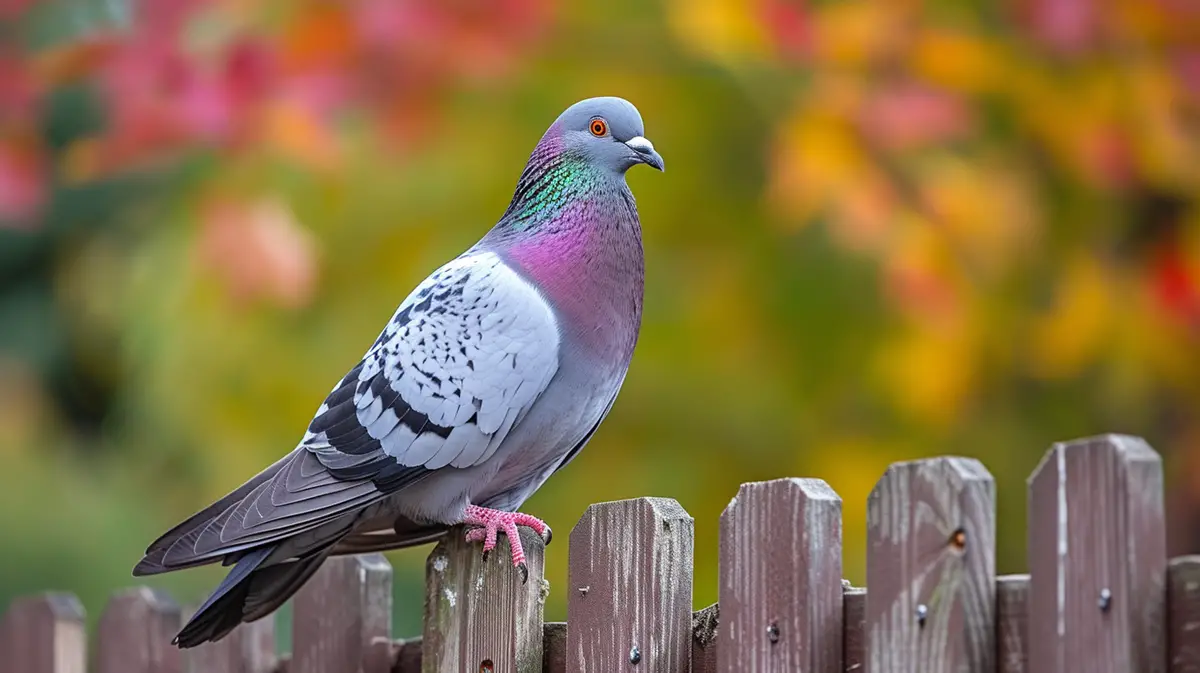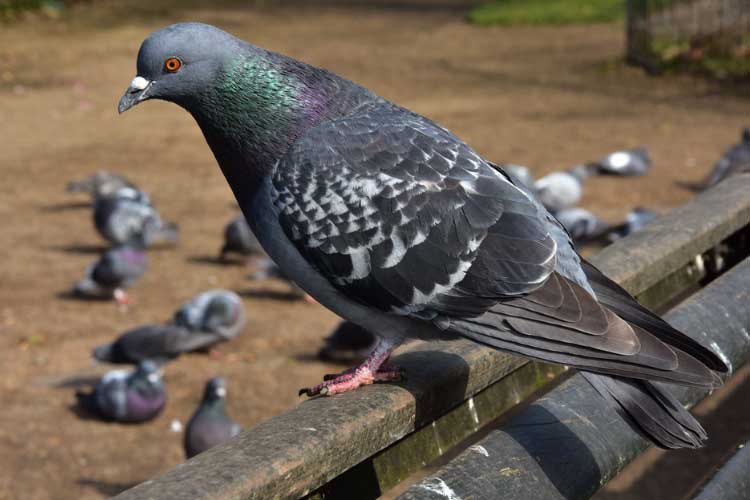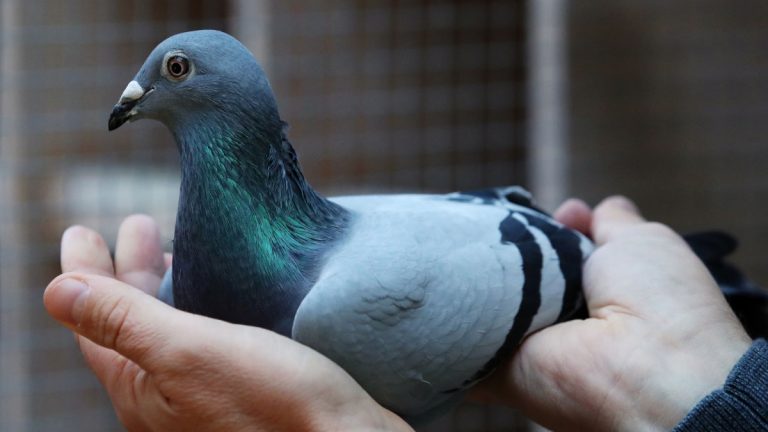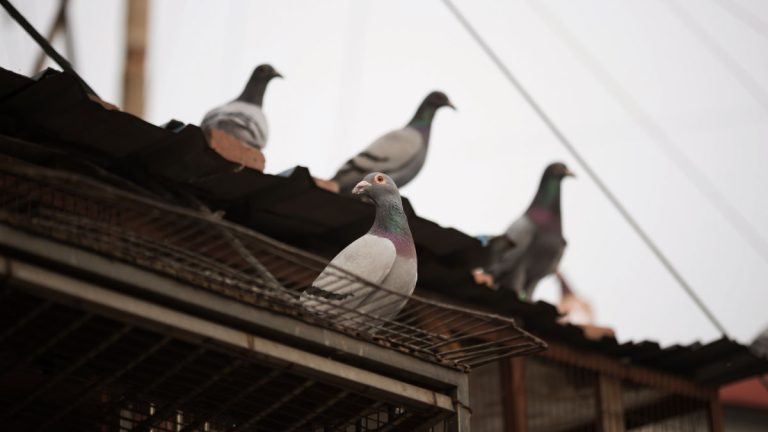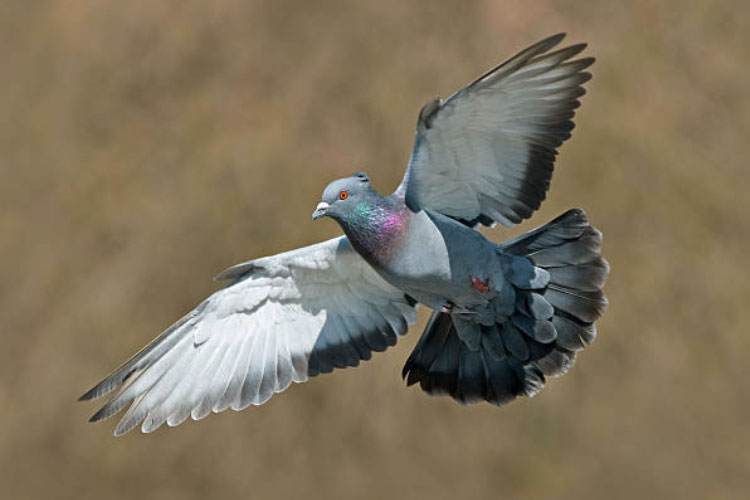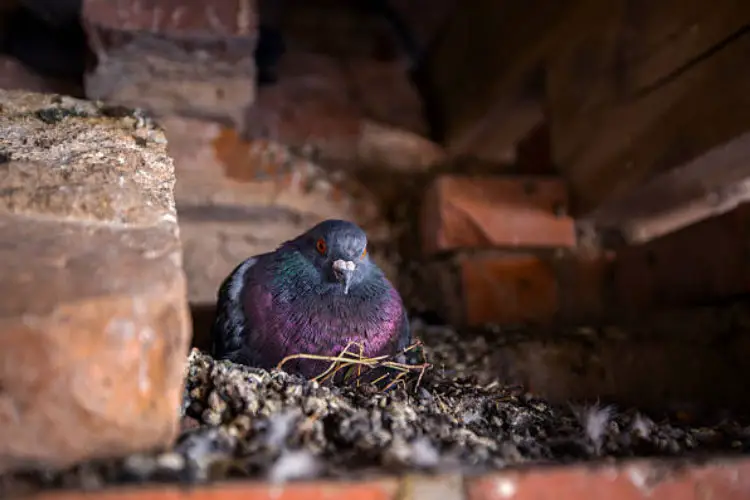Boost Pigeon Health with the Best Foods
If you’re a pigeon enthusiast like me, you know how important it is to provide your feathered friends with a balanced and nutritious diet. A healthy diet plays a crucial role in maintaining their overall well-being and ensuring they lead a long and happy life. In this article, I’ll share with you some of the best foods you can offer to your pigeons to keep them healthy and thriving. From protein-rich seeds to vitamin-packed fruits, these dietary recommendations will help you take your pigeon’s nutrition to new heights.
As pigeon owners, we want nothing but the best for our avian companions. And that starts with their diet. By providing them with the right foods, we can boost their immune system, enhance their plumage, and promote their overall vitality. So, whether you’re a beginner or an experienced pigeon owner, stay tuned as I uncover the top foods that should be a staple in your pigeon’s diet. Together, we’ll ensure that your pigeons are well-fed and ready to conquer the skies with their vibrant health and energy.
Importance of a balanced diet for pigeons
When it comes to keeping pigeons healthy and thriving, providing them with a balanced diet is of utmost importance. Just like humans, pigeons need a well-rounded and nutritious diet to support their overall well-being and lead a happy life.
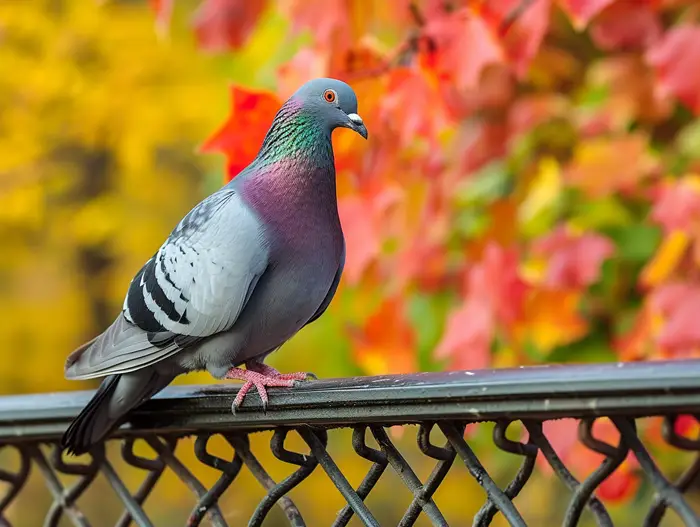
A balanced diet for pigeons is essential for several reasons:
- Optimal Health: A proper diet ensures that pigeons receive all the necessary nutrients in the right proportions. This helps prevent deficiencies and keeps their bodies functioning at their best.
- Strong Immune System: A well-balanced diet is crucial for boosting the immune system of pigeons. By providing the right combination of vitamins, minerals, and antioxidants, their bodies can effectively fight off diseases and infections.
- Vibrant Plumage: A healthy diet plays a significant role in promoting the growth of beautiful and vibrant feathers in pigeons. Proper nutrition ensures that their feathers are strong, shiny, and lustrous, contributing to their overall appearance.
- Enhanced Vitality: Pigeons with a balanced diet tend to be more energetic and active. The right combination of nutrients fuels their bodies, giving them the energy they need for flying, foraging, and other daily activities.
So, what exactly should be included in a balanced diet for pigeons? Stay tuned for the next section, where I’ll be sharing some of the best foods that can help keep your pigeons healthy and thriving.
Protein-rich seeds for optimal pigeon health

When it comes to providing a nutritious diet for pigeons, it’s important to include protein-rich seeds. These seeds are an excellent source of essential amino acids and help support the overall health of these beautiful birds. In this section, I will highlight the best protein-rich seeds that can contribute to optimal pigeon health.
- Sunflower Seeds: Sunflower seeds are a staple in a pigeon’s diet. They are packed with protein, healthy fats, and essential vitamins and minerals. These seeds provide the necessary energy for pigeons and help maintain their muscle development.
- Pumpkin Seeds: Another great option for pigeons is pumpkin seeds. These small seeds are rich in protein, fiber, and essential fatty acids. They are also a good source of magnesium and zinc, which are important for maintaining a strong immune system in pigeons.
- Safflower Seeds: Safflower seeds are high in protein and beneficial for pigeons’ feathers and skin health. They help in maintaining vibrant plumage and contribute to a healthy-looking appearance. Additionally, safflower seeds are known to have anti-inflammatory properties, which can benefit pigeons’ overall well-being.
- Quinoa: While not a seed in the traditional sense, quinoa is a protein-rich grain that can be a valuable addition to a pigeon’s diet. Quinoa is a complete source of protein and contains essential amino acids. It is also rich in vitamins and minerals, including magnesium, iron, and zinc.
Including these protein-rich seeds in a pigeon’s diet can have numerous benefits, such as promoting optimal health, supporting a strong immune system, and enhancing overall vitality. However, it’s important to remember that a balanced diet is key. Alongside these seeds, pigeons should also have access to a variety of grains, fruits, and vegetables to ensure they receive a well-rounded and nutritious diet.
By incorporating these protein-rich seeds into their diet, pigeon owners can help ensure that their feathered companions receive the necessary nutrients for optimal health and well-being. So, the next time you’re planning your pigeon’s menu, remember to include these beneficial seeds. Your pigeons will thank you with their vibrant plumage and boundless energy.
Essential vitamins and minerals for pigeons
Providing your pigeons with a balanced and nutritious diet is crucial for their overall health and well-being. In addition to protein-rich seeds, it’s important to ensure that they receive essential vitamins and minerals. These essential nutrients play a vital role in supporting their immune system, promoting optimal growth, and maintaining vibrant plumage.
- Vitamin A: This vitamin is essential for maintaining healthy eyesight in pigeons. It also helps in promoting healthy skin and feathers. Including foods rich in vitamin A, such as carrots, sweet potatoes, and leafy greens, in their diet can help fulfill their nutritional needs.
- Vitamin D: Pigeons need vitamin D to absorb calcium, which is necessary for strong bones and eggshell formation. While they can produce vitamin D when exposed to sunlight, providing them with a diet that includes fortified foods like whole grains can ensure an adequate intake of this important vitamin.
- Vitamin E: Vitamin E acts as an antioxidant, protecting pigeons’ cells from damage. It also supports their immune system and aids in muscle function. Foods high in vitamin E, such as wheat germ, spinach, and almonds, can be added to their diet to meet their vitamin E requirements.
- Calcium: Adequate calcium is essential for pigeons, especially during egg-laying periods. Calcium is crucial for the development of strong bones and eggshells. Offer them a variety of calcium-rich foods like crushed oyster shells, grit, and leafy greens to ensure they fulfill their calcium needs.
- Iron: Iron is necessary for the formation of hemoglobin, which carries oxygen in the blood. Including iron-rich foods like dark leafy greens, lentils, and liver in their diet can help prevent anemia and promote overall health.
By incorporating these essential vitamins and minerals into your pigeons’ diet, you can ensure they receive the nutrients they need for optimal health. Remember to provide a balanced and varied diet to keep your pigeons happy and thriving.
Nutritious fruits to enhance your pigeon’s well-being
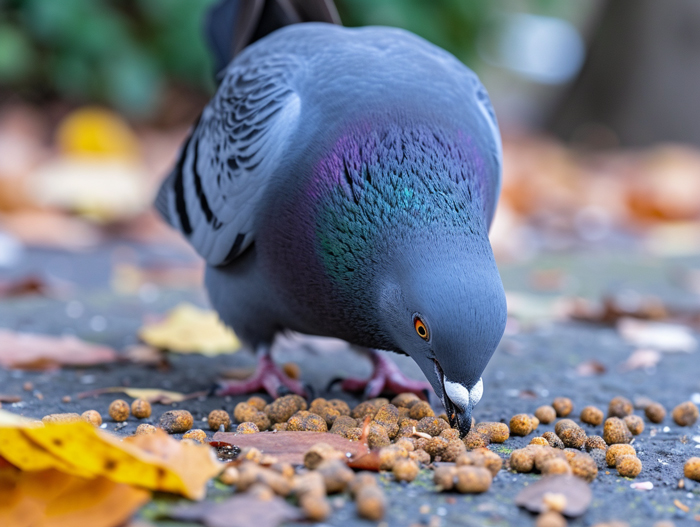
As a pigeon owner, it’s important to provide your feathered friends with a well-rounded and nutritious diet. While a balanced pigeon feed is crucial, incorporating fresh fruits into their diet can offer additional health benefits. Here are some nutritious fruits that can enhance your pigeon’s well-being:
- Apples: Packed with vitamins and fiber, apples are a great choice for pigeons. They provide a good amount of vitamin C, which promotes a healthy immune system, and fiber to aid digestion.
- Berries: Blueberries, raspberries, and strawberries are not only delicious but also highly nutritious for pigeons. These small fruits are rich in antioxidants, which help protect their cells from damage, and provide essential vitamins like vitamin K and vitamin E.
- Grapes: Pigeons love grapes, and these juicy fruits are a fantastic source of hydration. They are also high in natural sugars, which can provide a quick energy boost for your feathered friends.
- Pears: Another refreshing fruit to include in your pigeon’s diet is pears. Pears are rich in fiber, which aids in digestion, and they contain vitamins such as vitamin C and vitamin K.
- Oranges: Oranges are well-known for their high vitamin C content, which is beneficial for pigeons’ overall health. Additionally, oranges provide hydration and a burst of natural sweetness that pigeons enjoy.
Remember, it’s important to introduce new fruits gradually and in moderation. Start by offering small amounts and observe your pigeons’ response. If they show any signs of digestive upset, discontinue feeding that particular fruit.
By incorporating these nutritious fruits into your pigeon’s diet, you can provide added vitamins, antioxidants, and hydration, contributing to their overall well-being. Keep in mind that a balanced diet, including pigeon feed and fresh fruits, is essential to maintain a healthy and happy pigeon.
Boosting your pigeon’s immune system through diet
When it comes to keeping your pigeon healthy, a nutritious diet plays a crucial role. A well-balanced diet not only ensures that your feathered friend receives the necessary nutrients but also helps to boost their immune system.
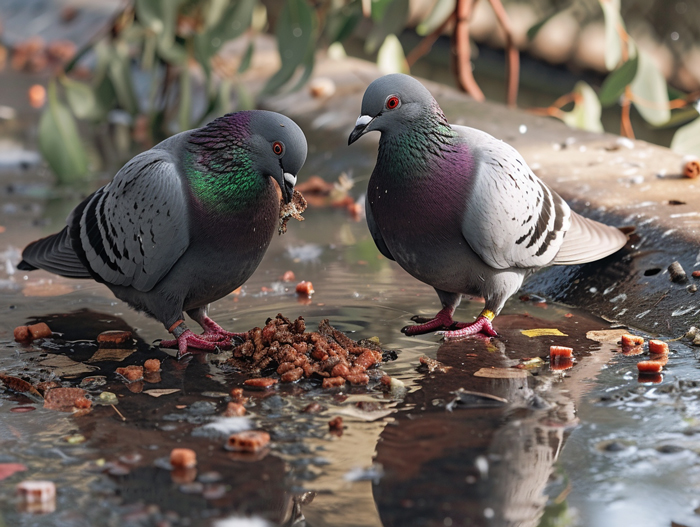
Here are some key strategies for boosting your pigeon’s immune system through their diet:
1. Include a variety of fresh fruits and vegetables
Fresh fruits and vegetables are packed with essential vitamins and antioxidants that are beneficial for the immune system. Incorporate a variety of options such as apples, berries, grapes, pears, and oranges. These fruits not only provide a burst of flavor but also help to keep your pigeon healthy and strong.
2. Add leafy greens to their diet
Leafy greens such as spinach, kale, and lettuce are excellent sources of vitamins and minerals. Including these in your pigeon’s diet can help enhance their immune system and overall well-being. Chop the greens into small pieces and mix them with their regular feed for a nutritious boost.
3. Ensure a balanced protein intake
Protein is essential for a strong immune system. Include high-quality protein sources in your pigeon’s diet, such as seeds, legumes, and cooked eggs. These protein-rich foods provide the necessary building blocks for a healthy immune system and promote optimal pigeon health.
4. Provide clean and fresh water
Water is vital for proper hydration and plays a crucial role in maintaining a healthy immune system. Make sure to provide your pigeon with fresh, clean water daily. Regularly clean their water dispenser to prevent contamination and ensure they have access to clean hydration at all times.
5. Limit processed or unhealthy foods
Just like in humans, processed and unhealthy foods can have a negative impact on a pigeon’s immune system. Avoid feeding them foods that are high in sugar, salt, or unhealthy fats. These can weaken their immune system and lead to various health issues.
Remember, a strong immune system is the key to keeping your pigeon healthy and protected. By incorporating these dietary strategies into their daily routine, you can ensure that your beloved feathered friend thrives with a robust immune system.
Stay tuned for more tips on providing the best diet for your pigeon’s health and well-being.
Conclusion
Providing a healthy and balanced diet is essential for maintaining the well-being of pigeons. Boosting their immune system through proper nutrition is a key strategy to ensure their overall health and protection. By incorporating a variety of fresh fruits and vegetables into their diet, along with leafy greens, pigeons can receive essential vitamins and antioxidants that support their immune function. Additionally, a balanced intake of protein helps to strengthen their immune system and maintain their overall health. It is important to provide clean and fresh water to keep pigeons hydrated and ensure proper digestion. Lastly, limiting processed or unhealthy foods helps to prevent any negative impact on their immune system. By following these guidelines, pigeon owners can help their feathered friends stay healthy and thrive.
